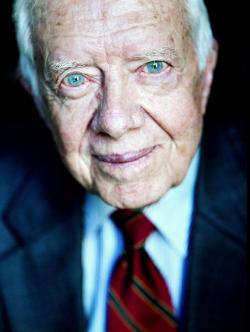
Australian academic and military strategist Des Ball -- whose work former US president Jimmy Carter once said had "saved the world" -- died last week after a long battle with cancer.
Tall and imposing and iconoclastic in an antipodean way, the bearded Ball passed away in Canberra on Wednesday aged 69. Despite his five-year battle with incurable cancer he continued to research and publish up until his death.
Born in 1947 in rural Nyah West in Victoria, Ball published more than 60 books, including several on Thai militias' origins and functions, and the need for reform. He was considered one of the foremost regional and international thinkers on defence and strategic security. His studies and training focused on several Asean countries including Myanmar and Thailand.
In his 2004 book, The Boys in Black he studied the paramilitary border force founded by the Royal Thai Army in 1978 to combat communist insurgency known as the Thahan Phran, or Rangers. The force drew recruits from poor villages the length of the country and later became the Kingdom's first line of defence along the Myanmar border. Ball later said it was likely that Thahan Phran soldiers comprised some of the notorious "men in black" who defended the red shirt protesters in political conflicts several years ago.
Another book he co-authored on the Or Sor, a paramilitary force based along the southern border with Myanmar, argued that Thailand's paramilitaries needed to be reined in and the army and police forces reorganised and reformed.
Many senior Royal Thai Army officers studied under Ball at the Australian National University where he taught for decades along with security "specialists" from other military in the region, according to one of his long-time associates. "You could always tell the ones who had studied in Canberra, they were wearing the Blundstone or the RM Williams boots," he said referring to the Australian-style work and cowboy boots.

Insurgent Intellectual: Essays in Honour of Professor Desmond Ball.
Early in his career, Ball spent time inside US top secret nuclear and command centres, advising the CIA, the White House and the Pentagon, where he persuaded them that a limited nuclear war was impossible.
Jimmy Carter wrote in Insurgent Intellectual: Essays in Honour of Professor Desmond Ball that published in 2013 that Ball's "counsel and cautionary advice based on deep research made a great difference to our collective goal of avoiding nuclear war".
In the 1970s, policymakers thought that if Cold War tensions boiled over, they could hit select Soviet targets that would control escalation of the conflict and force Moscow to back down. But Ball convinced the Americans a limited nuclear strike would not be possible.
Ball's earlier studies on US military bases in Australia, Pine Gap and Nurrungar, had lost him favour with both American and Australian intelligence agencies. Ball argued Australians needed more information to make judicious decisions on whether the bases met the country's security needs. Later in life, Ball became dismayed when he suspected the US may be using the bases as part of their drone warfare.
Above all, Ball considered himself a patriot and Democrat, despite him being a "person of interest" to spy agencies.
"They're about control of information, whereas I'm about disclosure of information," he often said.
Ball also wrote books and essays on Northeast Asian hostilities, the China-India nuclear arms race and Myanmar's insurgent armies. They failed to reach a broader international readership, but were of paramount importance to strategists and policymakers in the region.
Ball's insights into the security approaches of Asian governments were unparalleled. He chaired or worked on several think-tanks and institutes such as the Council for Security Cooperation in Asia-Pacific and the International Institute for Strategic Studies.
In a 2013 Spectrum interview, Ball expressed concern about the growing arms race in Asia, particularly China, the Koreas, Taiwan and Japan.

admirer: Former US president Jimmy Carter spoke highly of Ball's work.
"In Northeast Asia the situation is worse," he said. "The Cold War had limitations, constraints, and many treaties such as Salt [Strategic Arms Limitation Talks]. There were regulations and some stability; different rules applied at the time. When things go wrong in Northeast Asia, things will turn very bad."
His colleagues at the Australian National University in Canberra paid tribute to his international standing and exhaustive field work.
John Blaxland, from the ANU Strategic and Defence Studies Centre, said while Ball's work was occasionally controversial, it was always important.
"Des's insights on the intelligence community at times seemed controversial," Mr Blaxland said.
"His work pushed the bounds of what was considered appropriate by the bureaucracy but his work proved important in informing and shaping the national debate about the American alliance and intelligence architecture in general.
"Insiders, while squawking at times about what he wrote, never failed to follow closely what he had to say."
Ball remained passionate about the changes in Myanmar after the military relinquished control prior to national elections in November last year. He believed that the former military masters were still in control of the country and the ethnic people would be the big losers despite the appearance of a new democratic era.
"Des told me before he died that these generals would use their ill-gotten gains to whitewash their deeds, and within five years would be pillars of respectability," journalist Phil Thornton said of a conversation shortly before he passed away.
"Don't let the bastards get away with it."